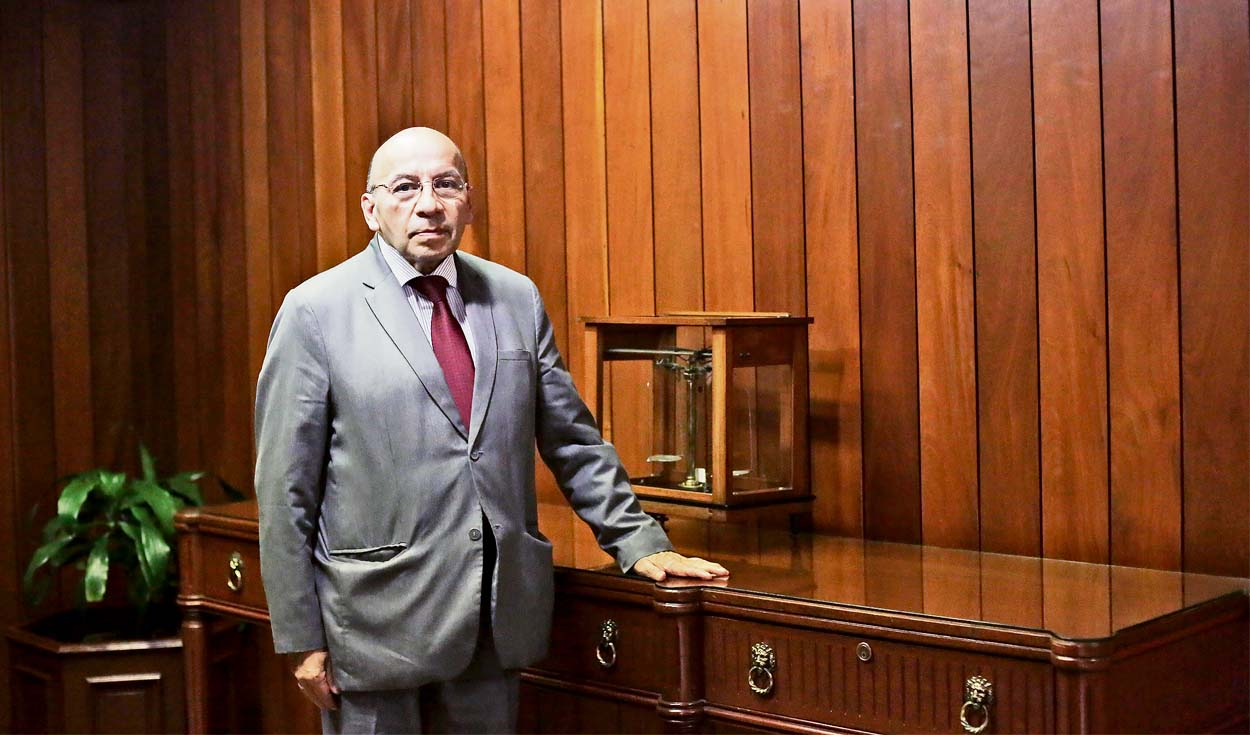
The former head of the Ministry of Economy and Finance spoke about the country’s economic situation and its constant growth, despite the current socio-political crisis. “I believe that there is a kind of resilience in the local economy that responds to various strengths. One of them, perhaps the most important, is fiscal strength.”
The former Minister of Economy and Finance and professor of the PUCP CENTER, Kurt Burneo spoke with La República about the economic reactivation plan that the Government and his position on takings such as a new pension reform and the controversial ruling of the Constitutional Court (TC).
— Do you think that the conditions are being given to stimulate private investment?
— It is clear that the Government, mainly through the Ministry of Economy and Finance (MEF), is making a series of efforts to improve expectations, which is a fundamental determinant of what private investment is. And in that sense, I understand that the MEF has proposed a set of economic reactivation measures, which starts from quite reasonable things. The MEF proposes three steps to be able to increase private investment. One, what is the recovery in terms of promoting the acquisition of machinery and equipment, the issue of construction materials and steel. The second part has to do with the reactivation of employment and the third is to improve consumer conditions.
— Are you going the right way?
— When one looks at the MEF agenda from the short-term side, what is the status of these reactivation efforts, one finds, for example, in the case of Impulso Peru, that Congress has already approved 90% of the proposed measures. Which is a great advantage, since the measures will have an impact of 0.8% on GDP by 2023. Second, the Con program Punche Peru, at least Congress has approved 50% of the measures and that will have an impact of 1.2% on the economy. And the third aspect that makes up the MEF’s short-term agenda is the delegation of powers that have been obtained. In other words, the elements that make up the reactivation are more auspicious.
— Why does the economy continue to grow despite political and social turmoil?
— I believe that there is a kind of resilience in the local economy that responds to various strengths. One of them, perhaps the most important, is the fiscal strength. Public finances have been managed prudently in the last 20 years and this has meant, for example, that with a fiscal deficit cap of 2.5% of GDP, last year it was 1.6%. In other words, public finances are in line with and overcomplied with current regulations.
— What does that strength imply?
A country that has the deficit under control also means that the public debt with respect to GDP will tend to fallmeans that the country will be less indebted, it will be more solvent, and as it is, the yield on sovereign bonds that express risk will tend to fall over the months.
— How are we doing in job recovery?
— Today 7.8 workers out of 10 are employed in the informal world, they are underemployed. But that responds to a productive structure where the sectors that grow the most in relative terms are not very intensive in the use of labor. I am talking about the case of non-primary GDP. It should not surprise us that if this trend continues, we will definitely have little growth. We could grow at 3% next year, but the impacts on formal employment will definitely be marginal. When there is no formal employment, people look for themselves, they invent a job. And what will that mean? That we could have growth rates of 3% in the economy, but also a job growth a bit far from what we need as an economy to reverse the scenario.
— The Government will present its proposal for a new pension system. What should they include?
– I take a step back. Any proposal associated with the pension systems In Peru they have a great determining factor and it is the informality of employment. If progress is not made in the formalization of the labor market, any change in terms of what the pension systems are will welcome a marginal part of the workers. Thinking about a successful reform of the pension system involves formalizing the labor market.
— Should the wealth tax be put on the agenda?
— I wouldn’t disagree, but I would with its implementation now. Any change in taxation can be counterproductive in terms of recovering expectations. First the economy recovers. Moreover, when the economy grows, simply by elementary mechanics the tax burden will increase. What can be done well is to spend all the bullets in the reactivation and then when we are at cruising speed, in terms of pressure, we could evaluate the relevance or not of modifications.
— What is your position regarding this TC ruling that would condone tax debts?
I think it’s a mistake CT because it generates all the incentive in the world so that tax debtors can go to the last resort (…) simply because it will not cost them anything, because there is no late payment interest. Money has a cost in time, S/100 now is not the same as S/100 a year from now. This would also generate the inducement for economic agents, natural and legal persons, who are now complying with their obligations, to be encouraged not to do so. A negative demonstration effect would be generated. And that’s definitely bad for revenue.
Source: Larepublica
Alia is a professional author and journalist, working at 247 news agency. She writes on various topics from economy news to general interest pieces, providing readers with relevant and informative content. With years of experience, she brings a unique perspective and in-depth analysis to her work.












